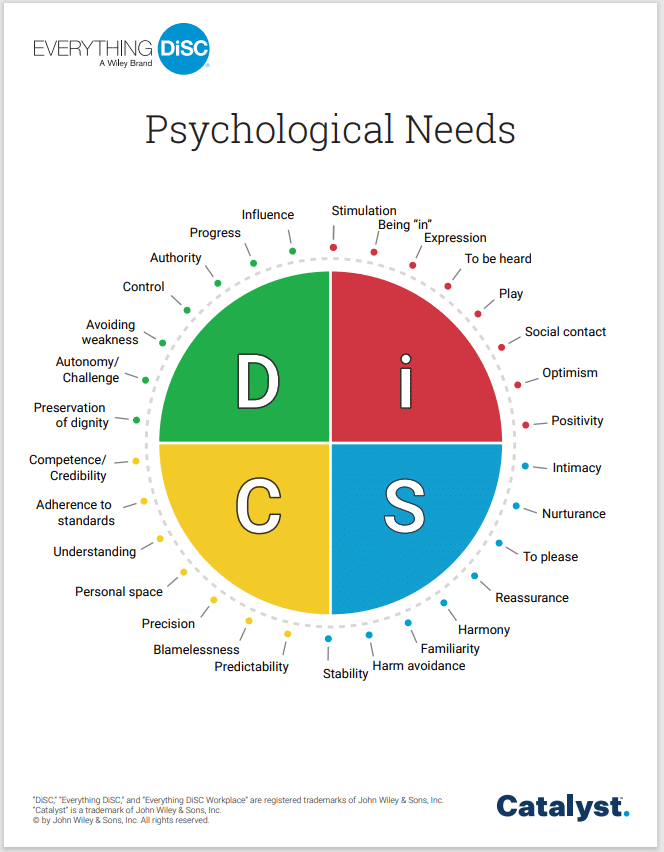You’ve likely heard the adage, “To err is human.” It’s a reminder that nobody is infallible, and mistakes are a natural part of life. While mistakes can be frustrating and sometimes embarrassing, they also offer us valuable opportunities for growth and self-improvement. In this article, we’ll explore the benefits of making mistakes and why it’s important to learn from mistakes as an essential aspect of personal and professional development.
The benefits of making mistakes
-
Learning and growth
One of the most significant benefits of making mistakes is the opportunity to learn and grow. Mistakes provide us with lessons that textbooks and lectures can’t replicate. When we make a mistake, we’re given a chance to understand what went wrong and how to avoid repeating it in the future. This experiential learning can be more effective and long-lasting than theoretical knowledge.
-
Resilience and adaptability
Mistakes can also help you develop grit and become a more adaptable person. Facing and overcoming errors requires us to develop problem-solving skills, think on our feet, and adapt to unexpected challenges. This resilience becomes a valuable asset in navigating the uncertainties of life and the ever-changing professional landscape.
-
Creativity and innovation
Many groundbreaking discoveries and inventions have resulted from mistakes. Famous examples include the discovery of penicillin and the invention of the microwave oven. Making mistakes can lead to unexpected insights, pushing us to think outside the box, experiment, and innovate. In creative fields, errors can be a catalyst for fresh ideas and unconventional solutions.
-
Improved self-awareness
When we make mistakes, it forces us to take a closer look at ourselves. We often uncover our weaknesses, limitations, and areas that require improvement. This process of self-reflection and self-awareness can lead to personal growth and a better understanding of our own capabilities and potential.
-
Empathy and compassion
Experiencing mistakes ourselves can lead to greater empathy and compassion for others who make errors. Recognizing that everyone makes mistakes allows us to be more understanding and supportive of those around us. This fosters better relationships and more compassionate teams.
-
Confidence building
Interestingly, making mistakes can actually boost our confidence. It might sound counterintuitive, but overcoming challenges and learning from mistakes can give us a sense of accomplishment and self-assurance. When we realize we can bounce back from errors, we become more self-assured and willing to take calculated risks. Also, once we’ve failed and learned, the next time a similar situation comes around, we’ll be more confident we can handle it because we already know what doesn’t work.
-
Achievement and success
Success is rarely a straight path, and many successful people have a history of making mistakes. Thomas Edison famously said, “I have not failed. I’ve just found 10,000 ways that won’t work” while inventing the lightbulb. Mistakes are often stepping stones on the road to achievement and success.
Making mistakes can actually boost your confidence. When you realize you can bounce back from errors, you become more self-assured.
Why some people fear failure more than others
When asked, most people wouldn’t say they enjoy making mistakes or experiencing failure. But you probably know some people who take a lot of risks and others who are bothered by even minor mistakes.
There are many factors that could contribute to a fear of failure, including early life experiences, social and cultural pressures, and the size of someone’s safety net. Not everyone can “afford” to fail or take big risks.
There are also personality types—informed by core values, psychological needs, preferences, and tendencies—who are often more risk-averse and more easily deterred by setbacks.
Within the Everything DiSC model, it’s common to observe an aversion to making mistakes in people with C (Conscientiousness), S (Steadiness), and SC styles. A fear of failure can stem from personality traits such as:
-
Conscientiousness
Conscientious individuals tend to be organized, detail-oriented, and meticulous in their work. While these traits can be valuable, they may also lead to a fear of making mistakes, as conscientious people are concerned about errors and take their responsibilities seriously.
-
Perfectionism
Perfectionism is a personality trait characterized by setting extremely high standards for oneself and being highly self-critical. This constant pursuit of flawlessness can be paralyzing, as it makes perfectionists highly anxious about making mistakes. In their eyes, failure is not just an event but a reflection of their self-worth.
-
Accommodation
Highly accommodating people may become so used to deferring to others’ ideas that they lose confidence in their own. The fear of failing can become a self-fulfilling prophecy, as their self-doubt inhibits them from taking necessary risks and trying new things.
-
Fear of judgment
Some people have a strong need to be seen as competent. For them, the fear of public embarrassment or disapproval if they make a mistake can deter them from taking risks or pursuing their goals.
-
Conflict avoidance
Individuals who prefer to avoid conflict also tend to avoid situations that may lead to criticism, rejection, or tension. This fear of negative evaluation can make them particularly sensitive to making mistakes, as they want to avoid any form of disapproval or disagreement.
Looking at the psychological needs of the different DiSC styles, you can see how each style may find it difficult to make mistakes, but for different reasons. For example, i styles may worry about social consequences of failure. D styles may worry that making mistakes will undercut their authority or lessen their control of a situation. For S-style folks, a mistake could lead to people being disappointed in them.
However, a fear of failure is often particularly pronounced in people who fall in or near the C quadrant. They worry that making mistakes could jeopardize their core needs of stability, predictability, blamelessness, precision, high standards, credibility, and dignity. People with these styles often need to make more of an effort to gain comfort with failure.

How to practice failure
The idea of intentionally making mistakes may seem counterintuitive to professional growth. And true, we’re not recommending you purposely add typos to your emails, or call your clients by the wrong name, or miss a deadline just to do so. Practicing making mistakes is more about expanding your mindset, setting bigger goals, and moving the needle a bit on your risk tolerance. Here are some ways to embrace the possibility of failure and learn from mistakes.
-
Cultivate a growth mindset.
To make more mistakes, you need to shift your mindset from a fixed one to a growth mindset. A growth mindset acknowledges that intelligence and abilities can be developed through dedication and hard work. Embracing this mindset will make you more open to taking risks and making mistakes without fearing judgment or failure.
-
Set ambitious goals.
When you set ambitious and challenging goals, you are more likely to make mistakes along the way. These mistakes are an inevitable part of pushing your boundaries and striving for excellence. Don’t be afraid to set big goals, and understand that mistakes are stepping stones towards achieving them.
-
Take calculated risks.
Making mistakes isn’t about being reckless; it’s about taking calculated risks. Identify areas in your life or work where you can step out of your comfort zone, try new things, and accept the possibility of failing. These calculated risks will help you gain valuable experience and learn from your mistakes.
-
Embrace a learning mindset.
Instead of dwelling on your mistakes as failures, view them as opportunities to learn and grow. When you make an error, ask yourself what you can glean from the experience. What lessons can be extracted? How can you do things differently next time? This shift in perspective will help you appreciate the value of mistakes. Learning scientist Manu Kapur developed the theory of productive failure in education settings. He says, “Being frustrated and struggling are normal things. In fact, if you’re not feeling those things, that means you’re probably not learning.”
-
Be realistic about the stakes.
For risk-averse people, even the smallest error can feel like a catastrophe. As an SC-type person myself, I fall into this category, so I’m not discounting this response. However, I find it helpful to remember, either after a mistake or when building the courage to try something new, that the stakes are rarely as immense as they feel to me. And that the consequence of trying and failing usually beats the consequence of not trying at all.
-
Make your fear a tool.
Is overthinking everything your superpower? Use it for good! Clinical psychologist Alice Boyes tells us, “Worrying can help you make better decisions if you do it effectively. Most people don’t. When you worry, it should be solutions-focused, not just perseverating on the presence of a threat. Direct your worry towards behaviors that will realistically reduce the chances of failure.”
-
Seek feedback and reflection.
Feedback from others is a powerful tool for making more mistakes and learning from mistakes. Actively seek feedback from mentors, colleagues, or friends on your work and actions. Their insights can help you identify areas where you can improve and reduce errors in the future, as well as areas where you could be taking more risks. Sometimes, just talking about mistake-making with others can help normalize the experience. You might even inspire your friends to be braver themselves. In addition to talking to others, regularly reflect on your experiences to gain a deeper understanding of your actions and decisions.
-
Embrace failure as a stepping stone to success.
Failure and mistakes are not endpoints but stepping stones on the path to success. Many highly successful individuals have a history of making numerous mistakes before achieving greatness. Embrace this journey and remind yourself that each mistake brings you one step closer to your goals. What if you thought of mistakes as green lights rather than stop signs?
-
Practice and persevere.
If you’re learning a new skill or tackling a complex project, don’t be discouraged by initial failures. Keep practicing, refining your approach, and pushing through adversity. The more you practice, the more you’re likely to make and learn from your mistakes.
Failure and mistakes are not endpoints but stepping stones on the path to success.
Learning from mistakes quotes
- “Failure is not the opposite of success; it’s part of success.” — Arianna Huffington
- “The only real mistake is the one from which we learn nothing.” — Henry Ford
- “Mistakes are the usual bridge between inexperience and wisdom.” — Phyllis Theroux
- “The greatest mistake you can make in life is to be continually fearing you will make one.” — Elbert Hubbard
- “Mistakes are the growing pains of wisdom.” — William George Jordan
- “I can accept failure, everyone fails at something. But I can’t accept not trying.” — Michael Jordan
- “The only way to avoid mistakes is to do nothing, which is the biggest mistake of all.” — Unknown
- “Mistakes are part of the dues one pays for a full life.” — Sophia Loren
- “He who never made a mistake never made a discovery.” — Samuel Smiles
- “Failure is not falling down but refusing to get up.” — Chinese Proverb
- “Success is stumbling from failure to failure with no loss of enthusiasm.” — Winston S. Churchill
- “The road to success is paved with mistakes well-handled.” — Danny Meyer
Embracing the idea of making more mistakes is a courageous step toward personal and professional growth. By cultivating a growth mindset, setting ambitious goals, taking calculated risks, and actively seeking feedback, you can turn mistakes into valuable opportunities for learning and improvement. Remember, mistakes are the building blocks of success. So, don’t be afraid to make a few mistakes as you journey toward your goals.


